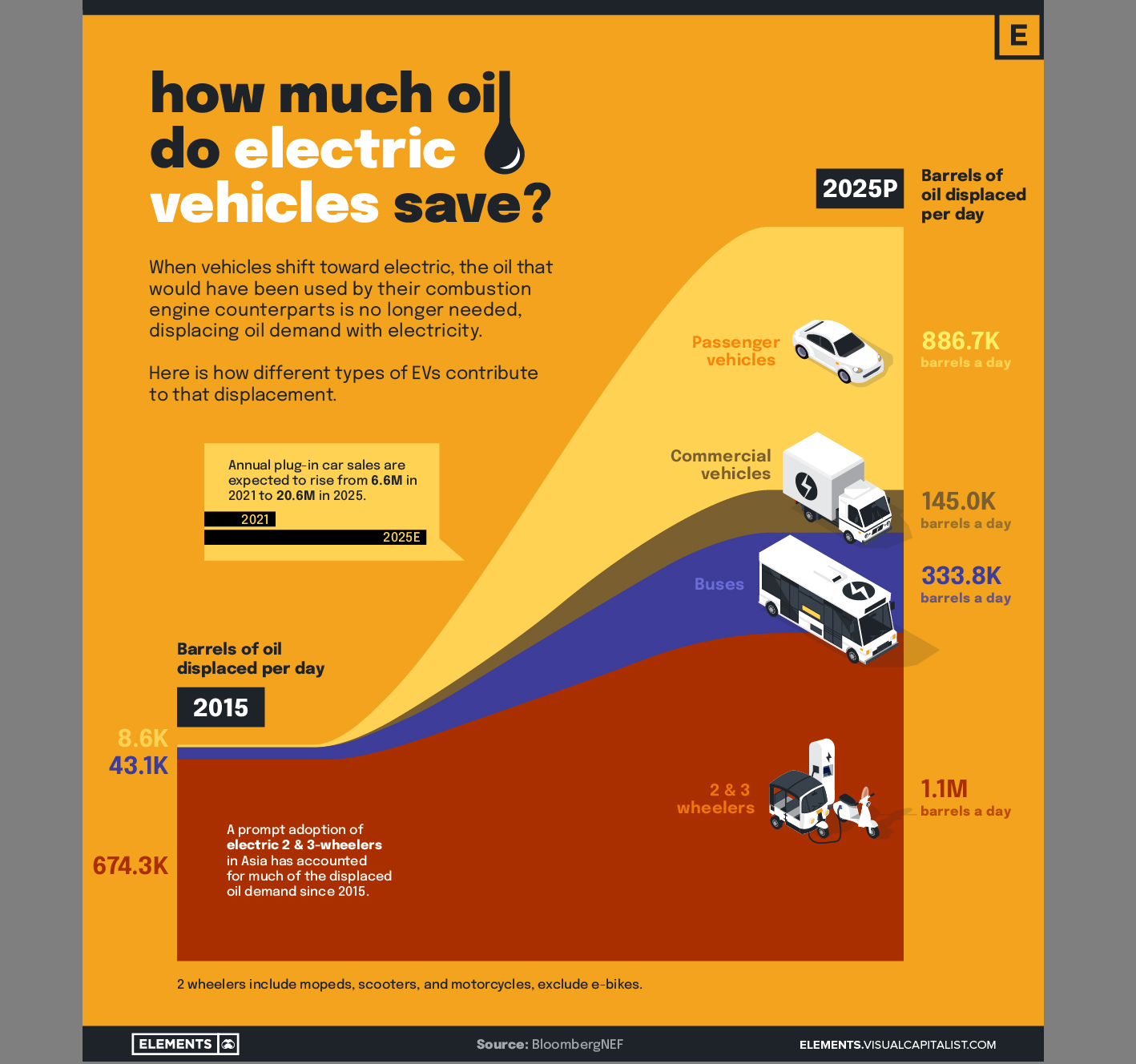The impact of electric vehicles (EVs) on oil consumption can be seen through the displacement of daily oil usage. In 2015, EVs contributed to significant oil savings, with the displacement reaching impressive numbers. By 2025, the displacement of oil by EVs is projected to increase even further, indicating a promising future for the adoption of electric transportation.
During this transition, various categories of EVs play a significant role in reducing oil demand. Electric passenger vehicles, for instance, are expected to displace a substantial amount of oil each day, with the number projected to be 886,700 barrels by 2025. Similarly, electric buses are set to contribute significantly, displacing 333,800 barrels of oil daily in the same year.
The impact of electric two and three-wheelers cannot be underestimated either. These vehicles, including mopeds, scooters, and motorcycles, are projected to displace 1,100,000 barrels of oil per day by 2025. Their widespread adoption, particularly in Asia, has been instrumental in achieving substantial oil savings since 2015.
Although electric commercial vehicles are still in the early stages of adoption, the numbers are expected to rise. By 2025, it is estimated that electric commercial vehicles will displace 145,000 barrels of oil daily, indicating progress in this sector as well.
When we consider these individual contributions, the total displacement of oil barrels per day by EVs is projected to reach an impressive 2,465,500 barrels by 2025. This statistic highlights the immense potential of EVs in reducing global oil consumption and moving towards a more sustainable energy future.
As the world continues to embrace the transition to electric mobility, it is essential to acknowledge the positive impact on both environmental and energy landscapes. The adoption of EVs not only reduces emissions but also opens up opportunities for utilizing clean energy sources such as wind, solar, and nuclear power. Additionally, the expansion of EV charging infrastructure and advancements in battery storage is crucial for supporting the widespread transition from traditional gasoline-powered vehicles to EVs.
Overall, the displacement of oil by EVs demonstrates the transformative potential of electric transportation in reshaping the global oil consumption landscape. By reducing our dependence on fossil fuels, we can pave the way for a cleaner, greener, and more sustainable future.
H/T: Visual Capitalist Elements
Read next: Those Purchasing Electric Vehicles Are Willing to Spend a Lot for a Long Battery Range
by Ayesha Hasnain via Digital Information World

No comments:
Post a Comment